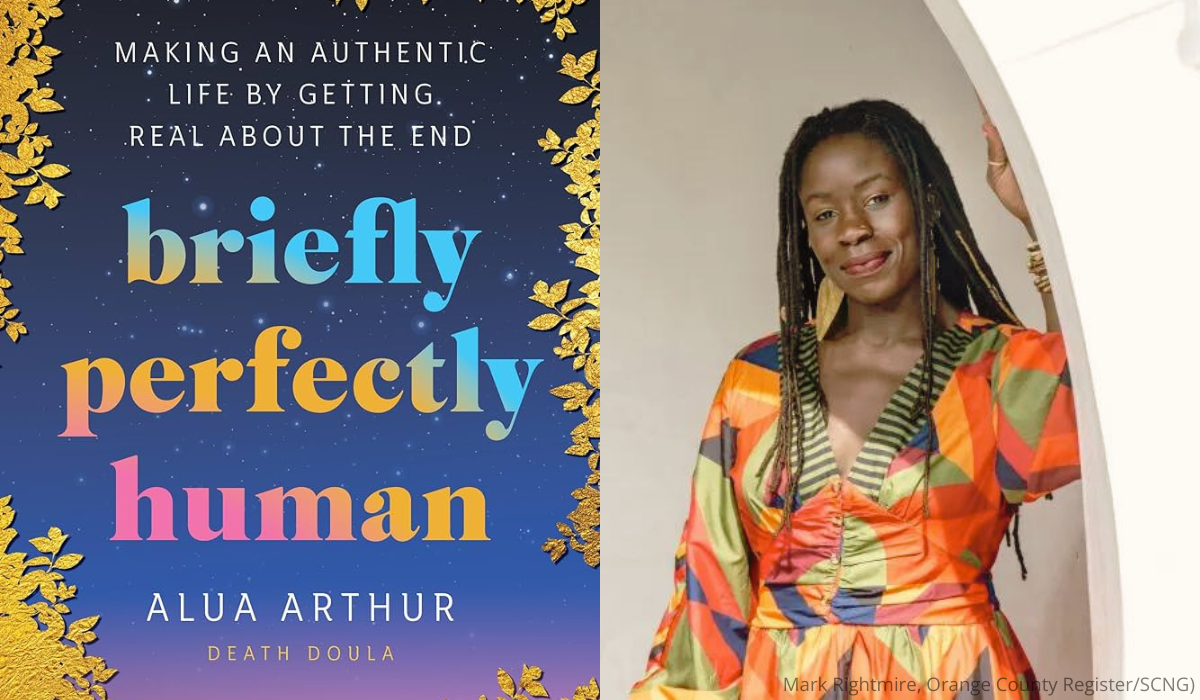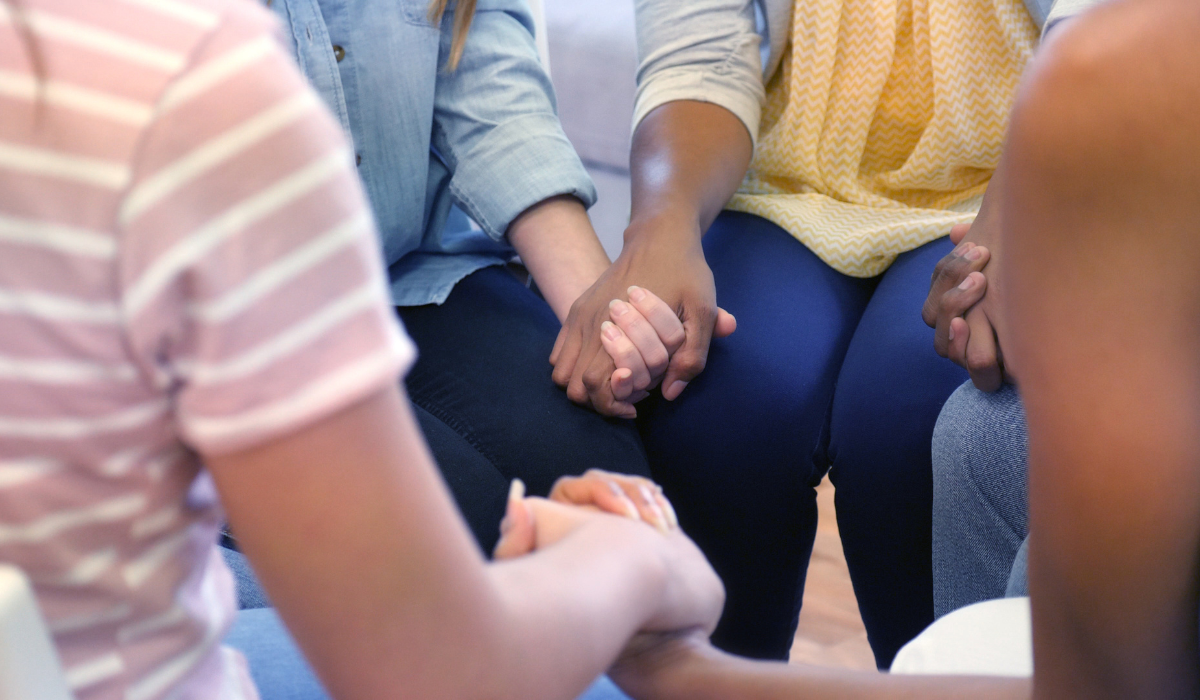These 6 Groundbreakers Have Radically Reframed the Way We're Thinking About Relationships
At The Sunday Paper, we’re blessed to explore meaningful topics with some of the brightest minds and biggest thinkers. This month, we’re thinking a lot about relationships—the ones we have at work, at home, in friendship, and in love.
To celebrate Maria’s latest summit—Radically Reframing Relationships—we’re highlighting some of today’s groundbreakers who’ve changed the way we think about our connections with others. Their wisdom is eye-opening and cathartic—and it’s providing new paths for approaching one of the most essential elements of our lives.
Gary Chapman and Jennifer Thomas, PhD, authors of The 5 Apology Languages, on the art of apologizing
Apologizing can be tricky business. And accepting an apology can be difficult, too. But Gary Chapman and Jennifer Thomas—authors of The 5 Apology Languages—have cracked the code. Their five apology languages give us the tools to make sure our apologies actually work. One key takeaway is sincerity. Are you really sorry, or are you just saying you are? Another tool of theirs is compassion.
“Just like there’s no one way to express love, there’s no one way to apologize,” says Thomas. “It’s not good enough to apologize in the reflexive way that works for you. You need to step in someone else’s shoes to find out what they’re waiting for. Otherwise, you’ll both be frustrated.”
Florence Williams, author of Heartbreak: A Personal and Scientific Journey, on the surprising benefits of a breakup
When Florence Williams’ husband left her after being together since college, she felt like her world had turned upside down. And while she started experiencing the expected emotional fall-out from her breakup—sleeplessness, upset stomach, and weight loss—she also developed some pretty serious physical ailments. Williams’ eye started twitching. She experienced heart palpitations. Inflammation markers in her blood work skyrocketed. She even developed Type 1 diabetes, an autoimmune condition that experts say may have been triggered by the emotional trauma she was dealing with in the wake of her marriage ending.
“One of the real surprises to me is how much pain extended beyond my psyche—and how much it registered in my body,” Williams told The Sunday Paper. “I was existentially scared about my future and how I was going to survive for the first time in my adult life.”
So, what do we do in the face of heartbreak? What ultimately helped Williams feel better—and what’s her best advice for others going through this pain? “First, you have to get out of the fight-or-flight phase,” she says. “Find some calm and peace, however you can do that. Move your body, listen to music, hang out with friends.
Connection comes second, adds Williams. Heartbreak will make you feel lonely and like you don’t belong. Reaching out to friends and family and loved ones is the antidote to that. Connecting to the natural world—or wherever you find some sense of beauty—can also be incredibly helpful. Beauty is an underappreciated piece of the heartbreak cure, believes Williams. When we connect to beauty, it helps us gain perspective. It helps us see that maybe our problems aren’t the biggest in the world, and we feel connected to something larger than ourselves.
“Finally, you want to find meaning and purpose,” Williams tells us. “What lessons can you take away from your heartbreak to strengthen your heart and to open your heart, so you ultimately increase your capacity to love? That’s the hidden gem in heartbreak—that greater capacity to love is absolutely possible.”
Terrance (“Terry”) Real, author of US: Getting Past You and Me to Build a More Loving Relationship, on the importance of fierce intimacy
Real dedicates every essence of his career to bringing people into connection. The revered therapist and author, and founder of the Relational Life Institute, refers to his work as “relational living”—a means of recognizing and honoring the transformative, life-enhancing, and critical nature of being in deep connection with oneself and others.
One of the core concepts of this work is what he calls “fierce intimacy.” For starters, it means moving past the toxic individualistic, patriarchal pillars Real believes have wreaked havoc on humanity. “We live in very divisive, disconnected times,” he told The Sunday Paper. “The state of disconnection is the main thing that ails us as a society, as well as in our relationships and with ourselves.”
By igniting the depths of true connection, Real believes we enhance our lives and worlds in immeasurable ways. What restores us most deeply is the restoration of connection to ourselves, Real says. “Most of us don't have loving relationships with ourselves,” he told The Sunday Paper. “We're pretty hard on ourselves and our relationship to ourselves can be worked on, just like any other relationship. As a young man, I loathed myself. I was violent with myself, and I inherited that from the violent background that I grew up in. We handle ourselves the way we were handled unless we do the healing work of changing that. So when I talk about connection, the first order of business is creating a connection to yourself in a loving way. How to hold yourself warmly and tenderly in the face of your human imperfections. That's in short supply in this culture.”
Robert Waldinger, MD, and Marc Schulz, PhD, authors of The Good Life: Lessons from the World’s Longest Study on Happiness, on what makes a good life.
What makes for a happy, fulfilling life—what many of us would call a good life? There’s a simple answer, according to Robert Waldinger, MD and Marc Schulz, PhD, the directors of the longest scientific study of happiness ever conducted. It’s not career success or financial stability. It’s not a healthy diet or lots of vacation time, either.
It turns out the secret to “the good life” is even simpler than all of that and within reach for all of us: good relationships.
That’s right. The more meaningful our connections with others, the more likely we are to live happy, satisfying, and overall healthier lives.
Drs. Waldinger and Schulz were initially on a mission to study thriving. “So much of research had been understandably about what goes wrong in human development. This was an attempt to ask, ‘What are the conditions that help people thrive as they go through life? How do people develop along healthy paths?’” says Dr. Waldinger.
Adds Dr. Schulz: “This study produced hundreds of scientific findings. But when you step back and take the big-picture view, what we found very clearly is that it’s relationships that help sustain our psychological wellbeing and our physical health. That was the signal across many of our findings.”
Their findings underscore what we value most at The Sunday Paper, and what Maria will be focusing on in her summit: connecting with people not only brings us joy, it’s requisite for a whole, healthy, enriching life.




